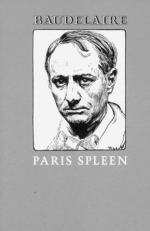
|
| Name: _________________________ | Period: ___________________ |
This test consists of 15 multiple choice questions and 5 short answer questions.
Multiple Choice Questions
1. Why do the fairies in "The Fairies' Gifts" have to work quickly?
(a) They have a time limit.
(b) The children they work with age quickly.
(c) They will lose their powers if they slow down.
(d) They naturally move fast.
2. In "The Foreigner", how is beauty described?
(a) As a goddess.
(b) As a goal.
(c) As a game.
(d) As a fool.
3. What does the hair feel like in "A Hemisphere in Her Hair"?
(a) Waves.
(b) Heavy.
(c) Silk.
(d) Flax.
4. What or whom does the narrator of "The Clock" name Feline?
(a) A Chinese neighbor.
(b) A woman.
(c) A dog.
(d) A cat.
5. Why does the narrator want something of color from the glazier in "The Bad Glazier"?
(a) To give to his wife.
(b) To brighten up his life.
(c) To decorate his bedroom.
(d) To resell at the market.
6. How does the narrator of "The Clock" describe Feline?
(a) Pompous.
(b) Hairy.
(c) Nervous.
(d) Difficult.
7. How does the tradesman react to his child's gift in "The Fairies' Gifts"?
(a) He tries to pay the fairy.
(b) He demands a better gift.
(c) He wants the fairy to explain it to him.
(d) He laughs at it.
8. What does the narrator drop on the glazier in "The Bad Glazier"?
(a) A picture frame.
(b) A book.
(c) A brick.
(d) A flowerpot.
9. How many devils visit the narrator of "The Temptations: Or, Eros, Plutus, and Fame"?
(a) Three.
(b) Four.
(c) Six.
(d) Five.
10. In "The Bad Glazier", why does the narrator's friend start a forest fire?
(a) It is an accident.
(b) Because he falls asleep while smoking a cigar.
(c) To see how quickly it spread.
(d) To frighten his wife.
11. In the beginning of "At One in the Morning", how does the narrator feel about his life?
(a) Pleased.
(b) Disgusted.
(c) Amused.
(d) Upset.
12. In "The Foreigner", what does Baudelaire say about his father?
(a) He does not have one.
(b) He does not know his father.
(c) He loves his.
(d) Baudelaire does not mention his father.
13. How is the scent of the hair in "A Hemisphere in Her Hair" described?
(a) As reeking of smoke.
(b) As smelling of flowers.
(c) As having a wide-range of scents.
(d) As not having any scent.
14. What does Baudelaire say about friends in "The Foreigner"?
(a) They are more important than family.
(b) He only has a few.
(c) He does not know the meaning.
(d) They waste time.
15. In "The Foreigner", what does Baudelaire say he does not know the latitude of?
(a) His country.
(b) His abilities.
(c) His city.
(d) His mind.
Short Answer Questions
1. Where does the narrator of "The Dog and The Vial" get the perfume?
2. What happens to the mountebank in "The Old Mountebank"?
3. In "The Double Room", what does the narrator call the woman on the bed?
4. Why does the narrator suggest people should buy toys in "The Toy of the Poor"?
5. What does the narrator call himself in "The Wild Woman and the Little Mistress"?
|
This section contains 504 words (approx. 2 pages at 300 words per page) |

|




